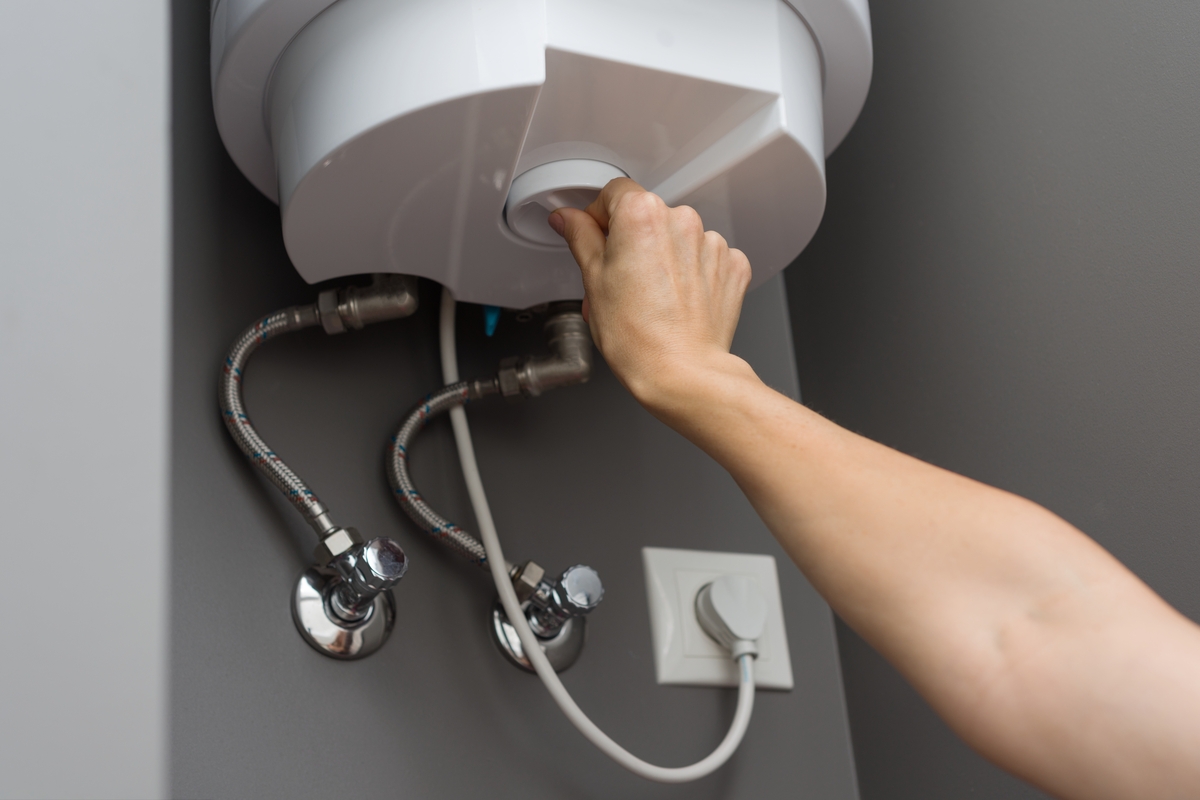Benefits of Switching to an Electric Water Heater

Switching to an electric water heater can offer numerous advantages for homeowners. In today’s world, where energy efficiency and sustainability are increasingly important, making this change can lead to significant benefits for both the environment and your wallet. In this article, we’ll explore the primary benefits of switching to an electric water heater, providing you with all the information you need to make an informed decision.
Energy Efficiency
Maximizing Energy Use
Gas water heaters lose a portion of their energy through venting, but electric models convert virtually all the energy they consume into heat, making them known for their energy efficiency. Due to this high level of efficiency, you spend less energy on heating your water, resulting in lower utility bills and less energy waste.
Advanced Technology
A modern electric water heater’s energy efficiency is further enhanced by advanced technology. In addition to insulated tanks and precise temperature controls, your water heater operates at maximum efficiency, reducing energy usage and saving you money.
Environmental Benefits
Reducing Carbon Footprint
Compared to gas water heaters, electric water heaters emit fewer greenhouse gases, which is one of the biggest reasons to switch to an electric water heater. In the process of using electricity, especially if it comes from renewable sources like wind and solar, you reduce the amount of carbon your household emits.
Supporting Sustainability
You are supporting the transition to sustainable energy sources by choosing an electric water heater. As the global community moves away from fossil fuels, electric appliances that can utilize renewable energy become increasingly important. This transition not only benefits the environment, but it also promotes a cleaner, greener future for everyone.
Cost Savings
Initial Investment and Long-Term Savings
The initial cost of an electric water heater is comparable to that of a gas heater, but the long-term savings are substantial. Because electricity prices tend to be more stable than gas prices, electric water heaters typically have lower operational costs. These savings can add up over time, making switching to an electric water heater financially viable.
Incentives and Rebates
Incentives and rebates are available in many regions for homeowners who purchase energy-efficient appliances, including electric water heaters. These financial benefits can reduce the initial purchase and installation costs, making the change even more economical.
Safety and Reliability
Enhanced Safety Features
Electric water heaters are inherently safer than gas models. There’s no risk of gas leaks or explosions, which can be a concern with gas-powered appliances. Electric water heaters also eliminate the need for flammable materials and complex ventilation systems, reducing the overall safety risks in your home.
Consistent Performance
Compared to gas models, electric models have fewer mechanical components, which means they can go wrong less often. This reliability translates to consistent performance and fewer unexpected breakdowns, providing homeowners with peace of mind.
Installation and Maintenance
Easier Installation
In general, electric water heaters are easier to install than gas models. Electric water heaters do not require gas lines or ventilation systems, which can complicate and increase the cost of installation. Due to this ease of installation, switching to an electric water heater can also be more affordable because labor costs can be reduced. However, it’s important to have electrical professionals handle the installation to ensure safety and compliance with local codes.
Lower Maintenance Requirements
Compared to gas water heaters, electric water heaters require less maintenance. They have fewer moving parts and do not require venting, so there are fewer issues that can occur. As a result of this simplicity, homeowners will be able to enjoy a reliable hot water supply with minimal maintenance over time, reducing both inconvenience and costs.
Versatility and Availability
Wide Range of Options
Electric water heaters come in a wide variety of models and sizes, making it easy to find one that fits your household’s needs. Whether you have a large family with high hot water demand or a small apartment with limited space, there’s an electric water heater that suits your requirements.
Advanced Features
Many modern electric water heaters offer advanced features such as smart controls and energy-saving modes. These features allow you to customize your hot water usage and maximize efficiency, ensuring that you get the most out of your appliance.
Conclusion
Switching to an electric water heater offers numerous benefits, including improved energy efficiency, reduced environmental impact, cost savings, enhanced safety, and greater reliability. With easier installation and lower maintenance requirements, electric water heaters are a practical and economical choice for many homeowners. As technology continues to advance, the options and features available in electric water heaters will only improve, making now the perfect time to make the switch.
FAQs
1. How long do electric water heaters typically last?
Electric water heaters typically last between 10 to 15 years, depending on the model and maintenance. Regular maintenance can help extend the lifespan of your appliance.
2. Are electric water heaters more expensive to run than gas models?
While electricity prices can vary, electric water heaters are often more energy-efficient and have lower operational costs in the long run. Additionally, incentives and rebates can further reduce overall costs.
3. Can I install an electric water heater myself?
While some homeowners may feel confident in their DIY skills, it’s generally recommended to have a professional install your electric water heater to ensure safety and proper functionality. Professional installation can also help you take advantage of any available warranties and rebates.





